The Biggest Misunderstandings About Evolution
Evolution is a pretty heavy subject these days, wildly debated between different political, religious and scientific communities. It's a debate that is as old as the concept itself, raging since Charles Darwin first studied finches on the Galapagos, and we are not likely to see the end of the debate within our lifetime. Today I'm not here to argue the subject or tell anyone what is right or wrong or what to believe; we all have our convictions and are likely to stick to them regardless of what I have to say. But I am here to offer just a little information; I think that, regardless of your beliefs on the subject, everyone should have at least a basic understanding of the different sides of the debate (the reason why I balanced out my scientific education with some religious studies courses). There are still a lot of misunderstandings about evolution and what exactly it is, and it is these basic misunderstandings that make it hard for many to accept the concept. Even if you read this post and still find the idea of evolution absurdly incorrect, hopefully you will at least have a greater understanding of the science to consider. Disagreeing with something is perfectly fine as long as you understand what it is you are disagreeing with.
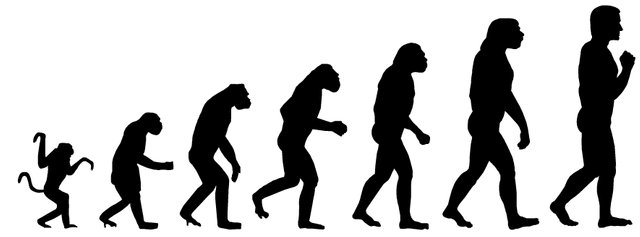
Evolution is a theory, but not a theory:
When arguing about evolution many people on both sides tend to point out "evolution is just a theory". While we do call it the "theory of evolution", most people are not aware that the everyday usage of "theory" and the scientific definition of a theory are radically different. For example, if you were talking about why something happened and said "I have a theory about why that happened", you are probably drawing conclusions based on partial, or even inconclusive, evidence. The scientific definition of a theory is almost the complete opposite; "a comprehensive explanation of some aspect of nature that is supported by a vast body of evidence" (Source). Take a look at other existing scientific theories; the heliocentric theory states that the Earth orbits around the sun. The cell theory explains that the body is made up of cells, and the theory of plate tectonics shows that the Earth's surface is divided into constantly shifting plates. These theories are so well-established and proven that no new evidence could change them substantially; you won't be able to prove the Earth doesn't revolve around the sun or that the human body isn't made up of cells. The theory of evolution is supported so heavily by observations, confirming genetic studies and telling fossil evidence that scientists are confident that the basic concept of the theory will not be overturned by new discoveries or evidence. Source
However, like all scientific theories, the theory of evolution is subject to continuing refinement as new areas of science emerge or as new technologies enable observations and experiments that were not possible previously. Source
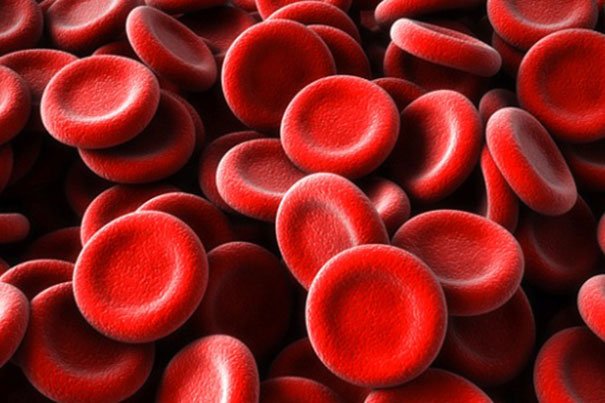
Theories can be used to make prediction about natural events or properties that we have not observed yet. Gravitational theory, for example, allowed scientists to predict how objects would behave in space, on the moon and on other planets long before astronauts and their spacecrafts were able to prove them. By confirming predictions, we increase our confidence in the overall theory. An example for evolution would be the discovery of Tiktaalik, the fossil intermediate between fish and the limbed terrestrial creatures; evolutionary biologists predicted the existence of such an organism occurring in sediments that were around 375 million years old. Their discovery of Tiktaalik confirmed their prediction and strengthened the theory. Source
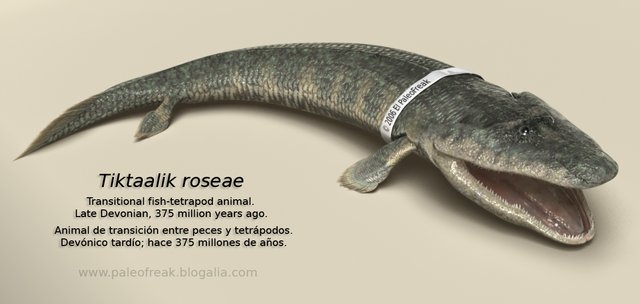
So is the theory of evolution considered to be a fact then? When a scientific explanation has been repeatedly tested and confirmed so many times that there is no longer a compelling reason to keep testing it or looking for additional examples, scientists consider that explanation to be a "fact" (Source). By that reasoning, we have enough evidence to confirm past and ongoing evolution as scientific fact; said evidence is so conclusive that scientists no longer question whether or not it has occurred. We now investigate new, related questions, such as the mechanisms of evolution or how rapidly evolution can take place, however the concept remains as fact. Source
Evolution is observable:
There are actually two types of evolution that exist with supporting evidence for each (and of course they support each other). The first is macroevolution, and this is major evolutionary change over a massive time scale; this is the evolution of entire taxonomic groups. The concept that all mammals, including ourselves, evolved from a mammal-like reptile would be an example of macroevolution, a nearly inconceivably massive change that took hundreds of millions of years. Macroevolution cannot be observed first hand due to longevity, but can be confirmed through genetic evidence and fossil records.
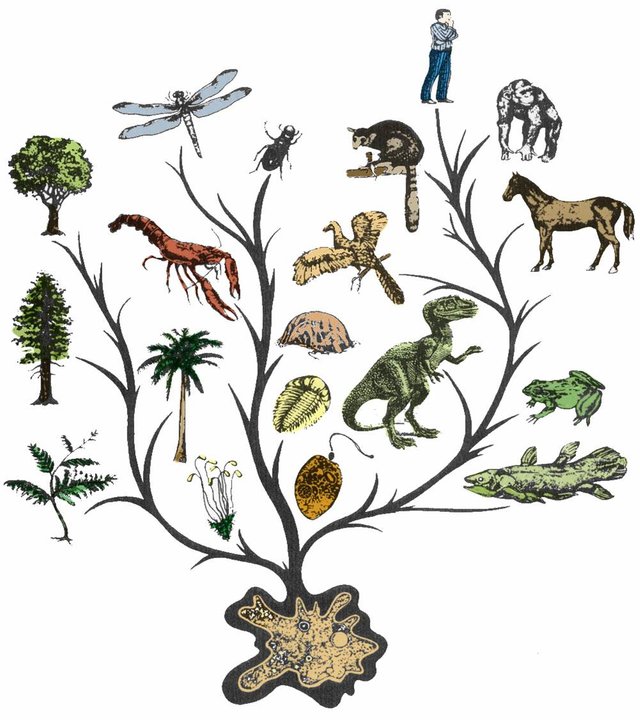
The other type of evolution is called microevolution. Microevolution is evolutionary change that is seen in a single species or population over a much smaller time period, perhaps only a few years, months or even days depending on the species, as a result of genetic mutions. Because it occurs on such a short time table, microevolution is observable; scientists have even observed changes in bacteria colonies in under an hour! Rather than the drastic changes of macroevolution, these changes are often more subtle, sometimes a simple as offspring being just a little lighter in color than their parents; these are generational shifts. When you have microevolution occurring over and over for millions of years, these tiny shifts add up to large-scale macroevolution and the species drastically changes over time thanks to these tiny, almost imperceptible changes. Mutation drives microevolution which drives macroevolution!

Evolution does not strive for the most "advanced form".
It is a popular misconception that organisms evolve to become more "advanced", that the goal of evolution is to become as strong, as fast, as large or as smart as possible. We confuse evolution with forward progress. Perhaps that belief is due to our own vanity; we want to believe we are the pinnacle of evolution, the best of the best. We see complex organisms, such as ourselves, as being better, and simpler, seemingly less-evolved organisms as less successful. But on Earth, all species are successful; if you aren't successful, you're extinct. All species alive today exist because they are successful in their ability to survive, not because of their complexity or simplicity. In fact, much of the world is dominated by simple organisms, not because they have evolved to be the best or more advanced, but because they have evolved to best fill their niche. Species evolve simply to be able to survive in their ecosystem long enough to reproduce; for some that means becoming more complex in structure, while for others simplicity is key. Look at jellyfish for example; completely brainless, no eyes, ears, or specialized respiratory or circulatory system. Their nervous system is just a loose network of nerves. They even eat and poop through the same orifice. But jellyfish haven't significantly changed in over 500 million years. There are around 2,000 species of jellyfish that inhabit all of the world oceans, yet they all maintain roughly the same body structure and features. Though incredibly simple, they have evolved to be incredibly successful organisms and are flourishing as a result. Because of that success, their evolution is not driven to make them more complex; their simple form has kept them alive since the prehistoric seas. No need to fix what ain't broke, right?
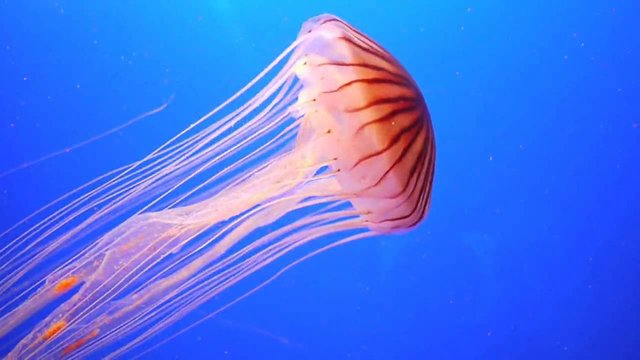
Humans are still evolving.
Many people seem to believe that we are "done evolving". Evolution is, and will always be, an ongoing process. Returning the example of jellyfish, though these animals haven't changed much in millions of years, that doesn't mean they've stopped evolving (or even come close). New species of jellyfish still arise and change as they face different natural and artificial pressures that threaten their survival, however their physical form hasn't changed much due to their ability to survive most pressures in their current state. Were they to face more drastic pressures, their evolution to overcome those challenges might result in greater change. The same goes for us; thanks to technology and our intellectual and societal advancement, we are able to comfortably survive the pressures we would normally face in our current form so our evolution doesn't necessitate much physical change. 20,000 years ago, our evolutionary change was far more rapid as we faced more challenges to survival and reproduction that we simply don't have to worry about today. But evolution also goes beyond obvious physical changes; changes in genes for example may not reflect a difference in appearance, but can improve our ability to fight diseases or maintain our health. Though we might not look like we are changing, we are still in a constant state of evolution. Source
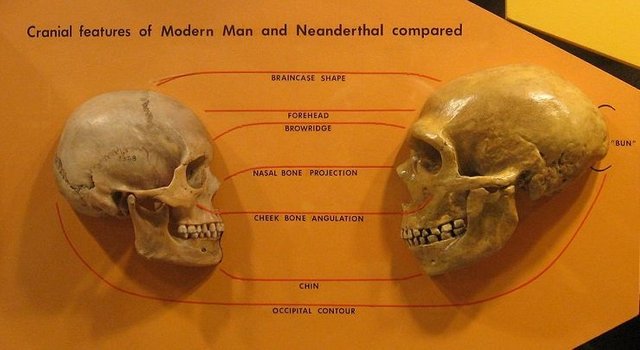
Evolution is NOT a theory about the origin of life.
Though the subjects often go hand in hand, the origin of life on Earth is not a central focus to the evolutionary theory. Evolutionary sciences study exactly how life changed AFTER its origins; regardless of the many hypotheses of how life began, we know that it soon branched and diversified, and evolution theory is focused on those processes. Evolutionary data can provide insight into the origin of life on Earth (whether or not it happened near a deep-sea vent, which organic molecules came first, etc.[source]), but that is not the primary focus of the study.

I haven't even begun to scratch the surface on the complex concept of evolution, there are so many sources out there that explain it far better than I ever could. But I wanted to at least try to clear up some of the biggest misconceptions about the concept; hopefully you learned something here today. Evolution is an incredibly beautiful process that drives the success of every species alive on the planet today, ourselves included. Even if you don't believe in the theory, I encourage you to learn as much as you can to at least understand the science behind it. Evolution isn't about conflict or trying to explain away God or religion, it is simply another means to begin understanding the vastly complicated and beautiful world we live in.
Image Links: 1, 2, 3, 4, 5, 6, 7, 8, 9

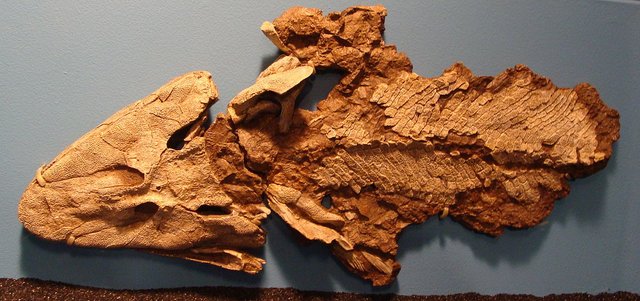
So, this is whats steemit means with good quality content. This was a great ready. Thank you.
Cool Post! Thanks for sharing!
Just to add some thoughts here... If you just look at a spine and how it's designed to move and carry the signals from our brain to other parts of our body you'll see we are physically pretty damn close to all other flesh and blood animals with brains.
Look what humans did with selective breeding to the spines and skeletons of dogs in the last 30k or so years. Great danes and bull dogs.
Also, most or our bodies still have access to the vast majority of movement patterns our ancestors had before us. Seriously, with no thought and instant understanding, I can swim like a tiktaalik roseae and I've never even seen one. Why would that ability be there if it wasn't from the past with the potential need for that to be passed on in the future!
Lol.. yeah... Regardless of consciousness, I'm not saying evolution is really what's happening but it does make a whole lot of sense!!!
just gotta I say I really enjoyed reading the other replies about this article. this debate isn't much of a thing in my own country so it's interesting for me to see different points of view.
great as always :-)
This is a very well written and highly informative article, so congratulations @herpetologyguy. I'd just like to comment on a few things.
First of all, you say in your introduction that evolution is "wildly debated between different political, religious and scientific communities". This may be right regarding the first two, but within the scientific community, there is not much discussion at all regarding the foundational tenets of evolutionary theory. Most of the polemics is actually promoted by religious groups; almost no serious scientist contests the evolutionary framework.
You did well in clarifying the scientific meaning of a "theory". The only hard fact that exists in science (and anywhere else) is observational data. Models are built by proposing hypotheses that describe the data. As more and better data is collected, models are pushed to the limits of their predicting power, with only a few surviving this iterative testing process. In a gross sense, the fundamental framework underlying these surviving models is called a "theory". Theories will never be the same thing as facts, but that doesn't take away their credibility if they can be used to accurately describe a wide range of observed phenomena.
It is also very well pointed that "evolution doesn't strive for the most advanced form". Although there might be epigenetic factors contributing to the evolution of species, the large driving forces are a genetic variability and natural selection. The former occurs essentially in a random fashion, with each individual having a slightly different genetic configuration. Most of these genetic variations are either innocuous or even detrimental, but some of them might be beneficial for an individual's fitness. Over time, individuals with higher fitness have a greater chance at reproducing and passing on these beneficial traits. This is natural selection. But his process is mostly based on random variability, which does not point towards a more advanced form. Also, the advantages to the fitness are highly dependent on changes in the ecosystem. This means, as @herpetologyguy has very well said, that all living species have successfully adapted to survive in their respective ecosystems. To say that one is more advanced than the other is not a scientific or biological statement, but a value judgement.
I believe you mentioned only tangentially a misconception which I believe is one of the most common: that humans evolved from apes. Both humans and apes which are alive today constitute different branches of the taxonomic tree. What evolutionary theory says is that humans and apes have a common ancestor. This ancestor's appearance might have been closer to that of current apes than humans, but it was neither of them; it was actually another species. In fact, all living organisms are very likely to have had a common ancestor. The special thing about humans and apes is our genetic similarity, which means that our common ancestor lived much less time ago than the common ancestor between humans and, say, iguanas.
Again, I'd like to point out to @herpetologyguy that this is a truly fine article. Keep posting these!
Thank you! You're right, the intro was poorly worded there (early morning), but I meant the debate rages BETWEEN science, politics and religion, not AMONG scientists.
As for the bit about apes, I didn't think I said we evolved from apes anywhere in the post itself (correct me if I'm wrong!). You're totally right, and I'm usually quick to correct people who claim we "evolved from monkeys". We are two points on a forked path, and where those paths intersect is our common ancestor. It may again have just been some poor wording on my part but the intention was definitely not to suggest we arose from today's apes!
Thanks for all the praise and support! Wow!
I'm sorry for the misunderstanding. You never said anywhere that we evolved from apes. My point was that, since this is one of the most common misconceptions, it should have a "section" of its own. I said you only tangentially mentioned this misconception when you say that all living organisms are evolutionary winners, so to say. But I believe it should be cleared once and for all that evolution does not say that we have evolved from other living apes.
Absolutely!
Very informative.
Thanks for your update @herpetologyguy
... following you and please do stay in touch
Great article! Wisdom teeth have always been a useful tool for me when it comes to discussing evolution with someone who is more grounded in belief. The gradual reduction in size of the jaw is a readily apparent manifestation of on-going human-evolution.
Evolution in the way a dog can become a whale does not exist. A giraffe wasn't a horse reaching for tall leaves. We didn't come from monkeys.
We can become bigger and stronger due to the things we eat. Also eating gmo crops don't help and that's not real evolution that's mutation.
Google the Russian silver fox experiment. They took 2 identical silver foxes and mated them generation after generation. They were all foxes but looked completely different. Colors sizes etc.
Scientists also tried evolving fruit flies due to short life span. They never changed to anything else but more fruit flies.
To say species don't change into other species over time simply isn't scientifically correct; we have pysical evidence of this, we have SEEN new species evolve. Sure, a dog won't just evolve into a whale, but they came from a common distant ancestor. A horse won't become a giraffe but they came from a common ancestor. And we didn't evolve from today's monkeys, but we share a common ancestor.
You are right about the fruit flies, they are popular for genetics experiments due to their short lifespan. But to become something other than a fruit fly would still take a huge amount of time. What these researchers are witnessing are tiny changes in the fly population; examples of microevolution. They are witnessing evolution, but on such a small scale that the species does not drastically change. As a whole, the fruit flies will not change during this short period, but if you kept watching for millions of years, they would become something new. For a species to "evolve" it doesn't have to drastically change.
A very interesting and widely known example of an evolutionary process is provided by the population changes of light and dark colored moths during England's industrial revolution. Basically, there was this peppered moth species who existed in light and dark colored variants (an example of polymorphism). Before the industrial revolution, most of the population of these moths was light colored, with the dark colored variant almost unseen. But with the industrial air pollution darkening the ecosystem, this trend progressively inverted, with dark colored moths ending up largely outnumbering the light colored ones. A change in the ecosystem changed the relative fitness of both variants, with natural selection promoting the survival of the now fittest dark colored variant.
You can read more about this here: https://en.wikipedia.org/wiki/Peppered_moth_evolution .
Another example of humans being unable to comprehend how long 4 billion years really is. "Scientists haven't been able to evolve fruit flies into a new animal within 10 years so, you know, evolution is bullshit."
If you believe we came from single cell organisms I don't know what to say.
That's kind of my point. And where do you believe we came from again??
God
Darwins' Theory has been around for quite some time. Until it is replaced by another "real" scientific theory or it is proven, we are kinda stuck, for now. Theory is not fact.
Creationism is not science, but belief.
True, but double check the bit I wrote about evolution being a theory. In science a theory is "a comprehensive explanation of some aspect of nature that is supported by a vast body of evidence" according to the National Academies of Science. By definition, the theory of evolution is actually accepted as fact by science because biologists can no longer question whether or not it has occurred. So according to science, a theory can absolutely be "fact".
That's just Science hoping Darwin is right, without real proofs that can be independently verified by other scientists.
Politically Darwin's theory was welcomed at that time in history, as it revealed "God's" plan, that change should be slow and gradual over time, evolution.
Britain and a lot of the world at that time was seeing the rise of anarchists and socialists, who wanted to smash the old order and quickly replace it with a new system. Darwin's science argued that slow change was "Natural" and should be emulated by man.
Alternatively, it can be argued that the events that create change are almost "instant" as with the Dinosaurs being wiped out by a meteor, Ice Ages, Volcanos and when the majority of Earth life was killed off by a poison gas, called Oxygen.
Note: When I say quickly, I mean thousands of years too, but not millions and billions.
Science likes uniformity and to put periods at the end of sentences, etc. They like order and for things to be settled. Most science will be corrected, annotated or simply be proven wrong. Being wrong is part of the process of learning.
Uncertainty is what causes people to look for answers, "Settled Science" does the opposite, it requires conformity. Those in power ridicule and punish those who would challenge the status quo.
Like the inquisition, funding is withheld, staff positions are not offered and in the case of "settled" climate change, some have actually proposed criminalizing dissent.
Eyes Wide Open
Fair enough. The only point I'll contest you on there is where you said there are no real proofs that can be independently verified by other scientists. What makes you say that? There have been thousands of fossil discoveries and genetic studies that have shed a lot of light on evolutionary processes. Many of these studies confirm the conclusions of other studies and build upon one another. There is so much collaboration among evolutionary biologists that I just feel that statement isn't quite accurate.
Good discussion, hopefully we haven't put anyone to sleep, yet.
If evolution is true, it should be occurring right now, we should be able to see it today. Forget about the fossil records, for a moment and let's look back 100, 200, 600 years. What animals have evolved?
Humans have long life cycles as do whales and tortoises, etc., but a lot of animals and insects have shorter life cycles, like a male house fly of 28 days with over 2,000 generations living, dying and not evolving (?) in the last 300 years.
Show me any proof that a current living species is evolving right now, going back less than one thousand years. We should be able to document at least one species out of the 8.7 million believed to be roaming the Earth today.
This is a serious question, that science simply cannot answer.
You're right, evolution is an ongoing process. Actually we have witnessed speciation events in several organisms; in these species we are witnessing population shifts that give rise to a new species. For example, killer whales are showing a major shift that will likely give rise to a new species down the road; one population uses echolocation quite heavily, predominantly feeding on fish, while the other population hunts mammals like seals and has largely learned to hunt without echo location. These animal largely breed within their own population so it is likely we will see two separate species arise with unique hunting habits. The article below shares several examples of speciation events we are currently witnessing.
https://blogs.scientificamerican.com/science-sushi/evolution-watching-speciation-occur-observations/
With flies in the lab, we can also see major shifts. One study was able to breed out the gene for wings, and the population shifted towards wingless flies. This is an evolutionary change that is observable in real time. Plenty of evolution can be seen right now, but it does take an incredibly long time to monitor the major shifts; for now we can only observe the minor shifts of microevolution.
Flies, similar to jellyfish, haven't drastically changed in millions of years, but that doesn't mean they aren't evolving. It simply means that the pressures they face have not forced them to change their physical form very much. Like a jellyfish, they are well-suited for survival, so they don't need to evolve these drastic physical changes. Some organisms may change drastically over a short time period while others may go unchanged for hundreds of millions of years!
Herpetologists are also studying a lizard that as we speak is making the transition from carnivore to herbivore, which is a huge change because it requires a different dentition and digestion process.
https://steemit.com/science/@herpetologyguy/lizards-show-transition-from-carnivore-to-herbivore
And what about dogs? We impose artificial selection upon them, selecting for specific traits and characteristics, and as a result dogs have drastically changed since their domestication! Change at the hands of some sort of pressure is evolution, even if it's human-guided evolution!
But but but isnt a book and faith much more reliable than studying,testing, and researching info that is eventually published in a book. 😐
And atheists are the " crazy ones." Great post!